Porcelain

Porcelain Kitchen Guide for your Floor and Countertop
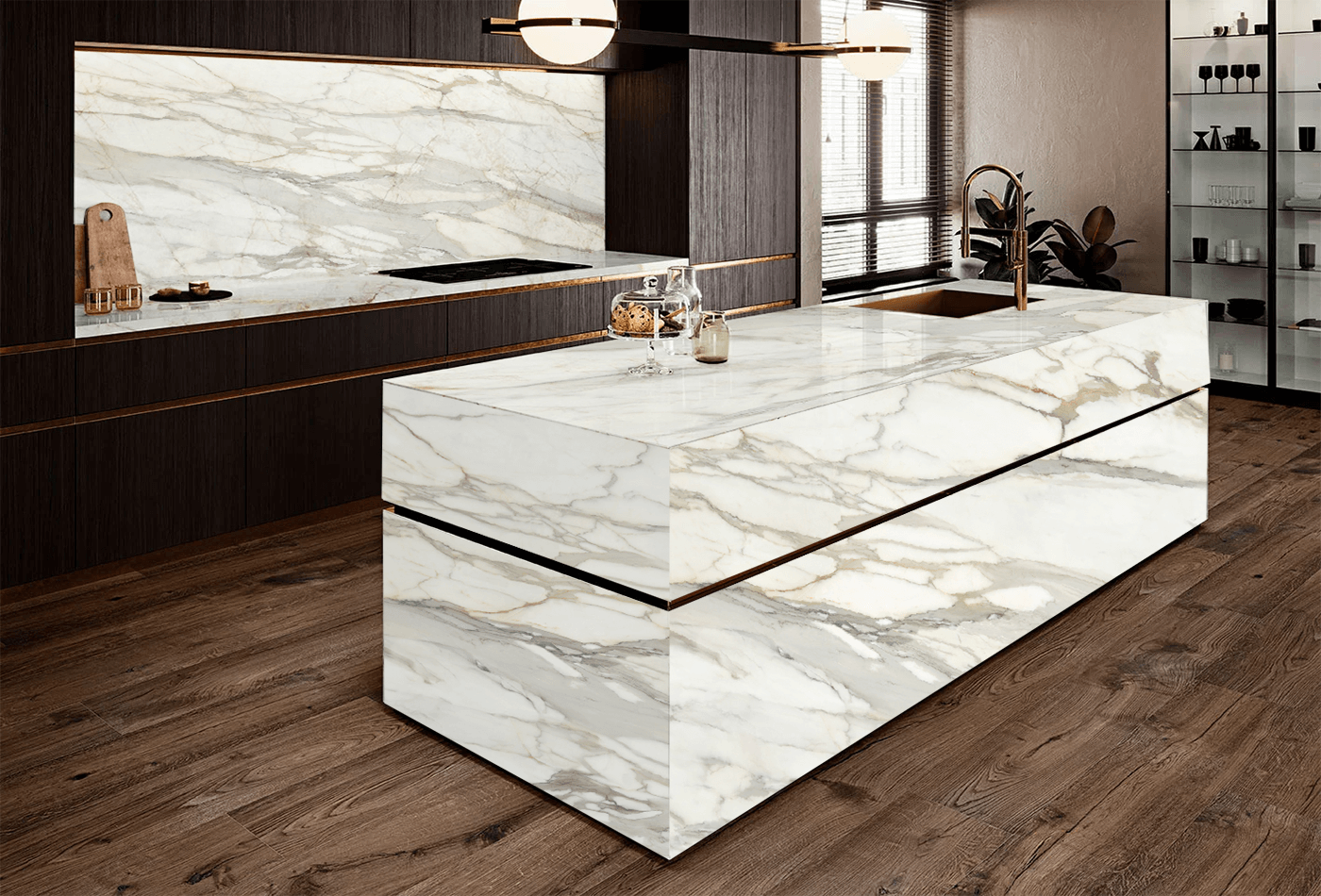
Porcelain Kitchen Countertop
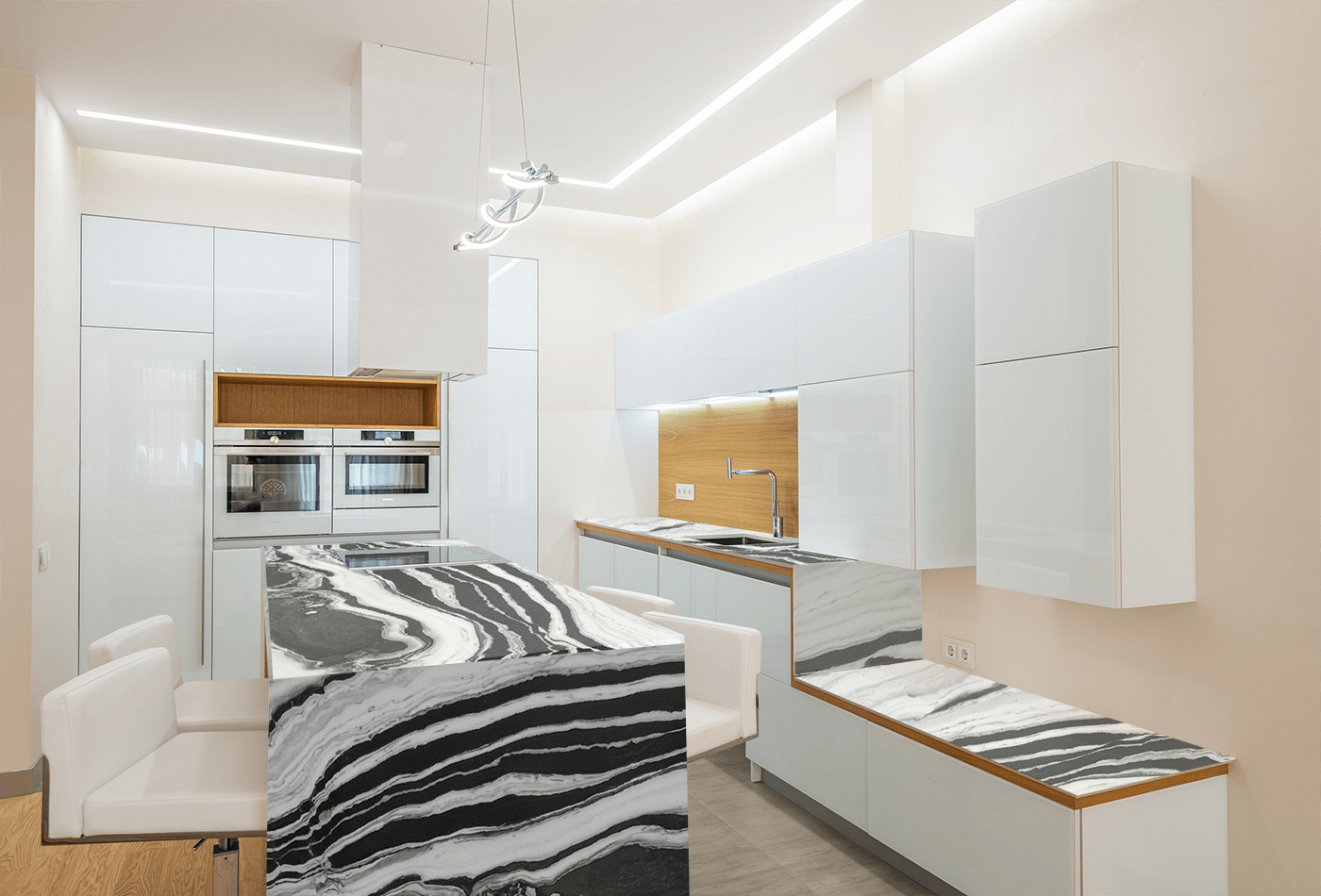
When choosing a material for your kitchen countertop, the first thing to consider is functionality, followed by aesthetics.
Why? Kitchen countertops, unlike bathroom countertops and vanity tops, are subjected to harsher conditions, necessitating the use of a material with sufficient strength and hardness to withstand chips, scratches, stains, and heat.
Porcelain is predominantly composed of kaolinite, also known as “china clay.” It is also composed of other minerals such as feldspar, metal oxides, and silica. All of these components are combined and mixed thoroughly under high temperatures to form the porcelain material. As a result, the material composition and manufacturing process of porcelain contribute to its sufficient strength, hardness, and heat resistance. Furthermore, because this is man-made, variations in design and colour can be applied in the final stages of production. Overall, these factors combine to make porcelain slabs an excellent and rewarding material for kitchen and bathroom countertops.
Porcelain Stone Countertop Made It the Perfect Option for your Kitchen
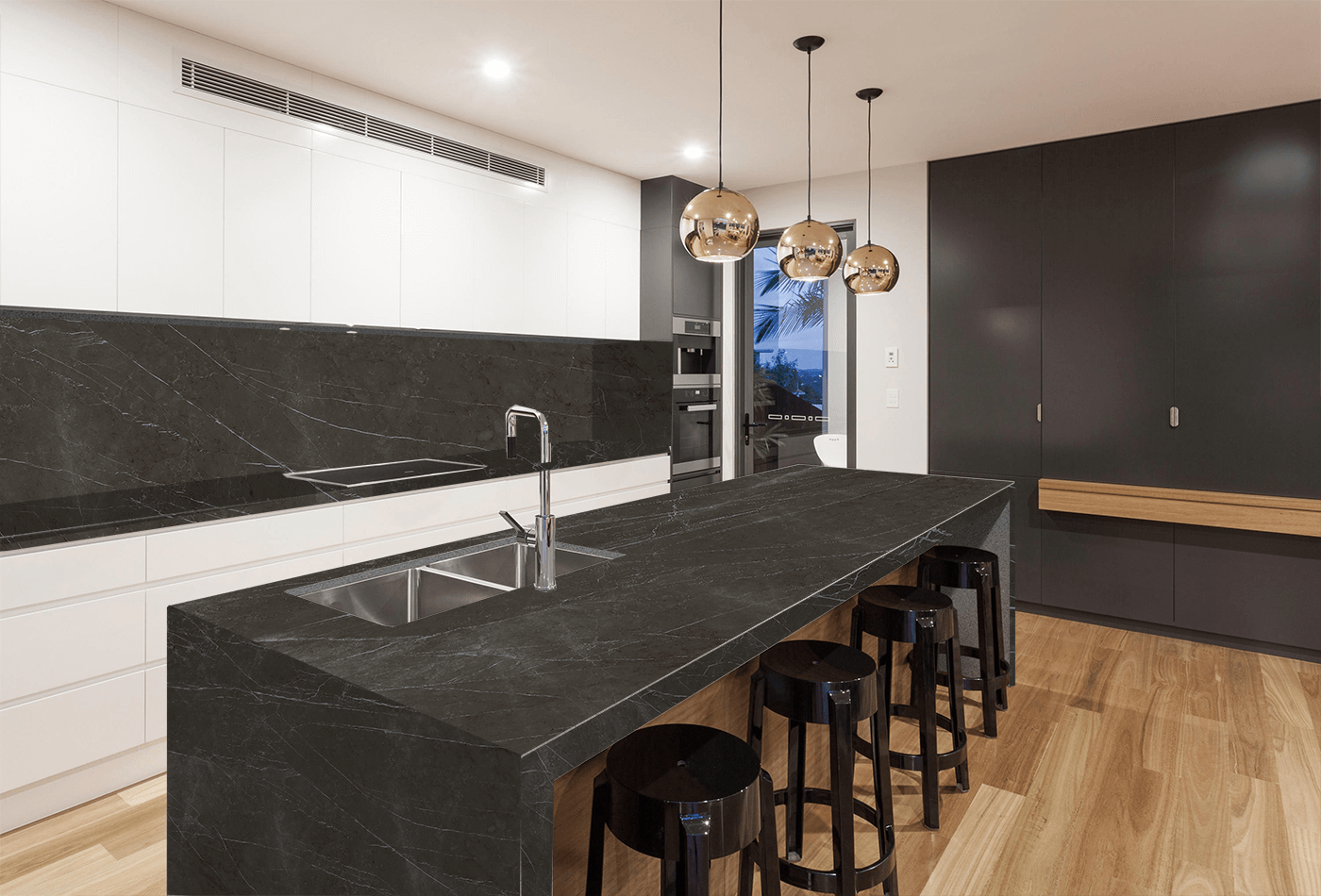
Improved manufacturing and durability, as well as an expanding range of styles, have resulted in a significant increase in the popularity of porcelain. It only takes a quick look at the material’s many advantages to see why it could be the ideal kitchen countertop material.
Durability with Low Maintenance
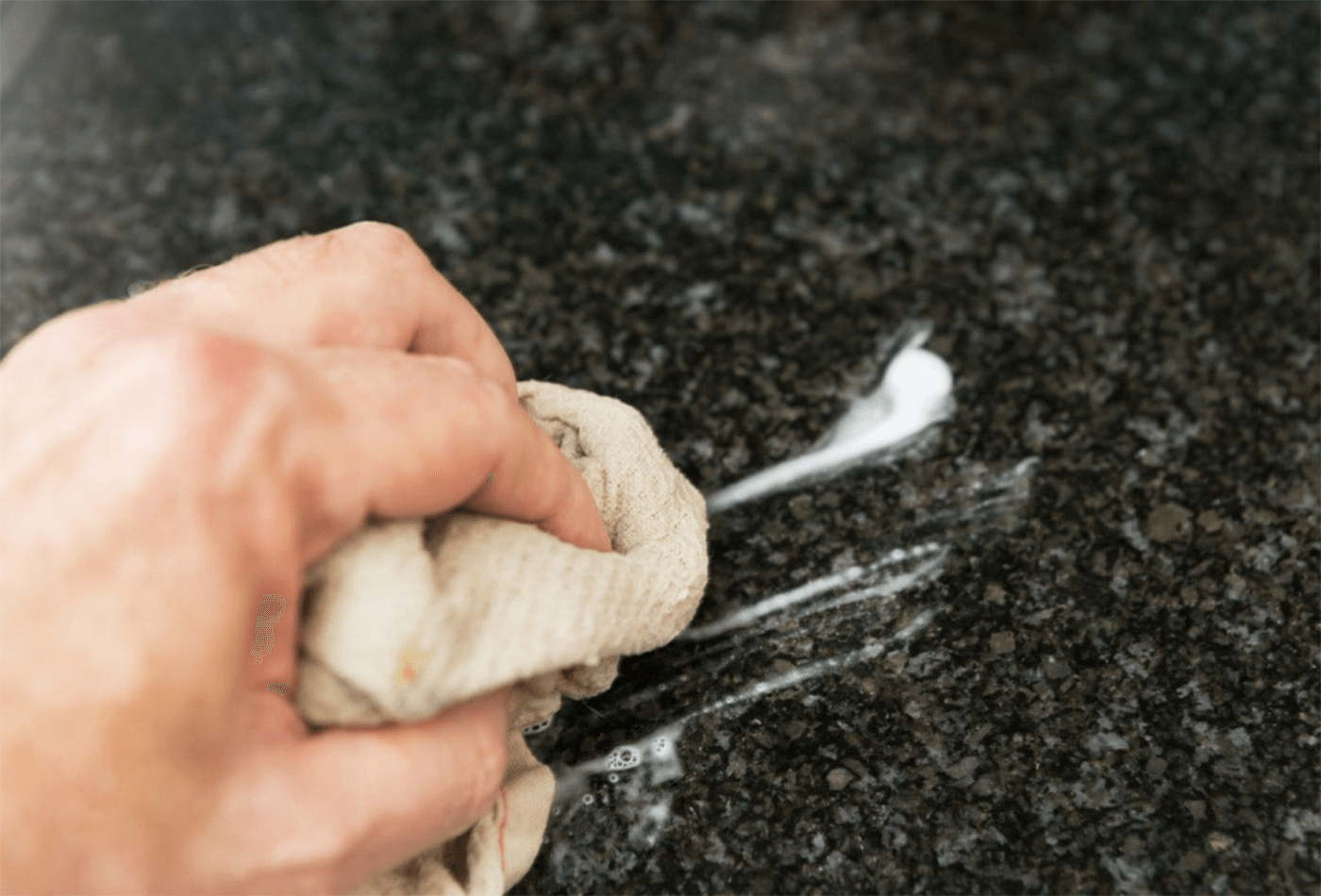
Porcelain countertops, like granite, are heat and scratch resistant, as well as non-porous, making them extremely durable. There is also no need to seal them after installation. Cleaning is as simple as using warm water. They’re an excellent choice for a busy kitchen.
A Wide Variety of Colours and Patterns are Available.
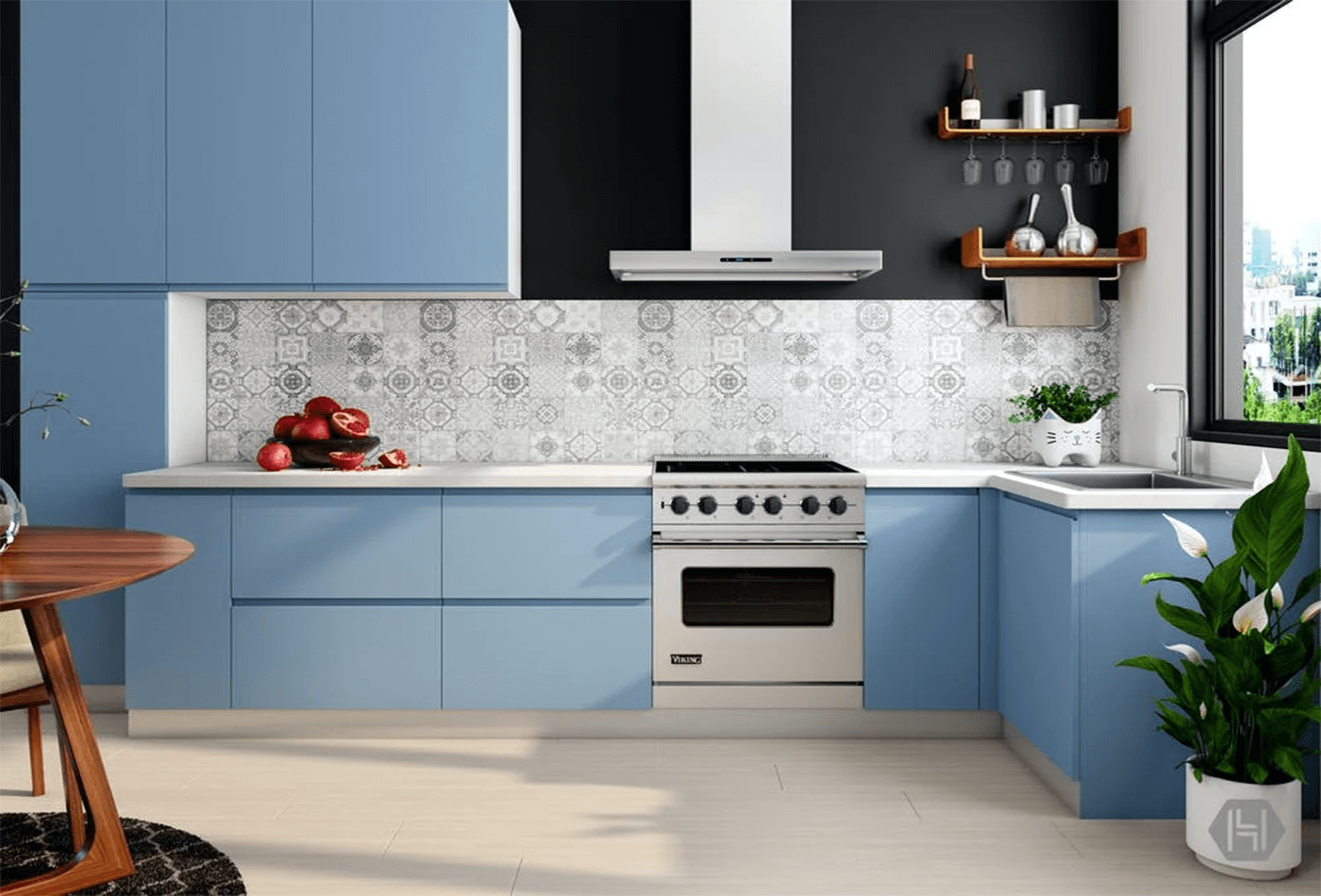
Glazing pigments used in the manufacture of porcelain can create patterns that resemble natural stone, complete with veining. Porcelain, on the other hand, can be made with a variety of consistent colours throughout. Whatever your kitchen’s colour scheme is, porcelain countertops are likely to complement it.
Finishes that Vary
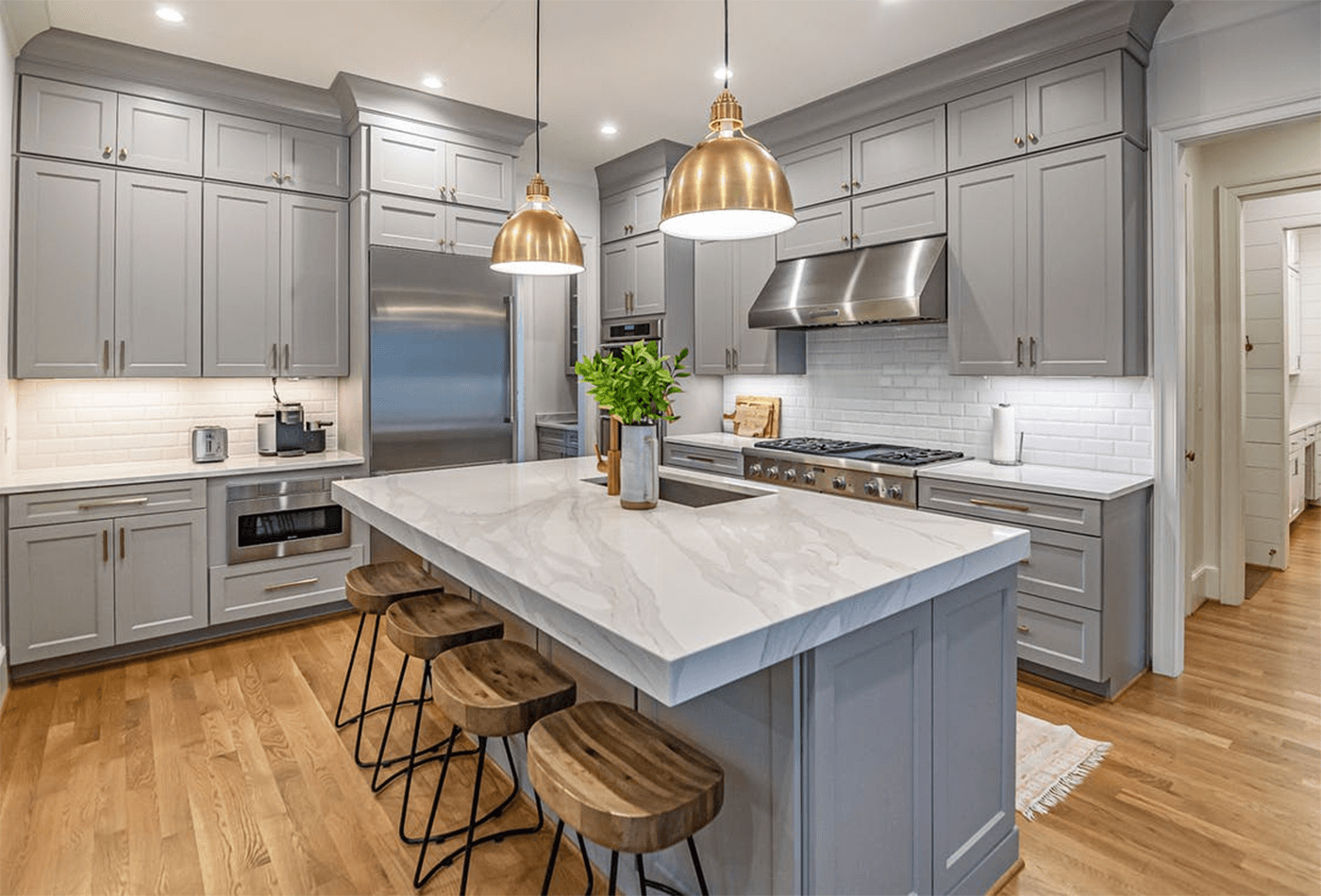
Do you require a high-gloss finish for your traditional kitchen? It’s not a problem. Want to add a matte finish to your natural wood kitchen island? Got it! Porcelain covers all of your countertop finish needs.
Thin and Light for Simple Installation
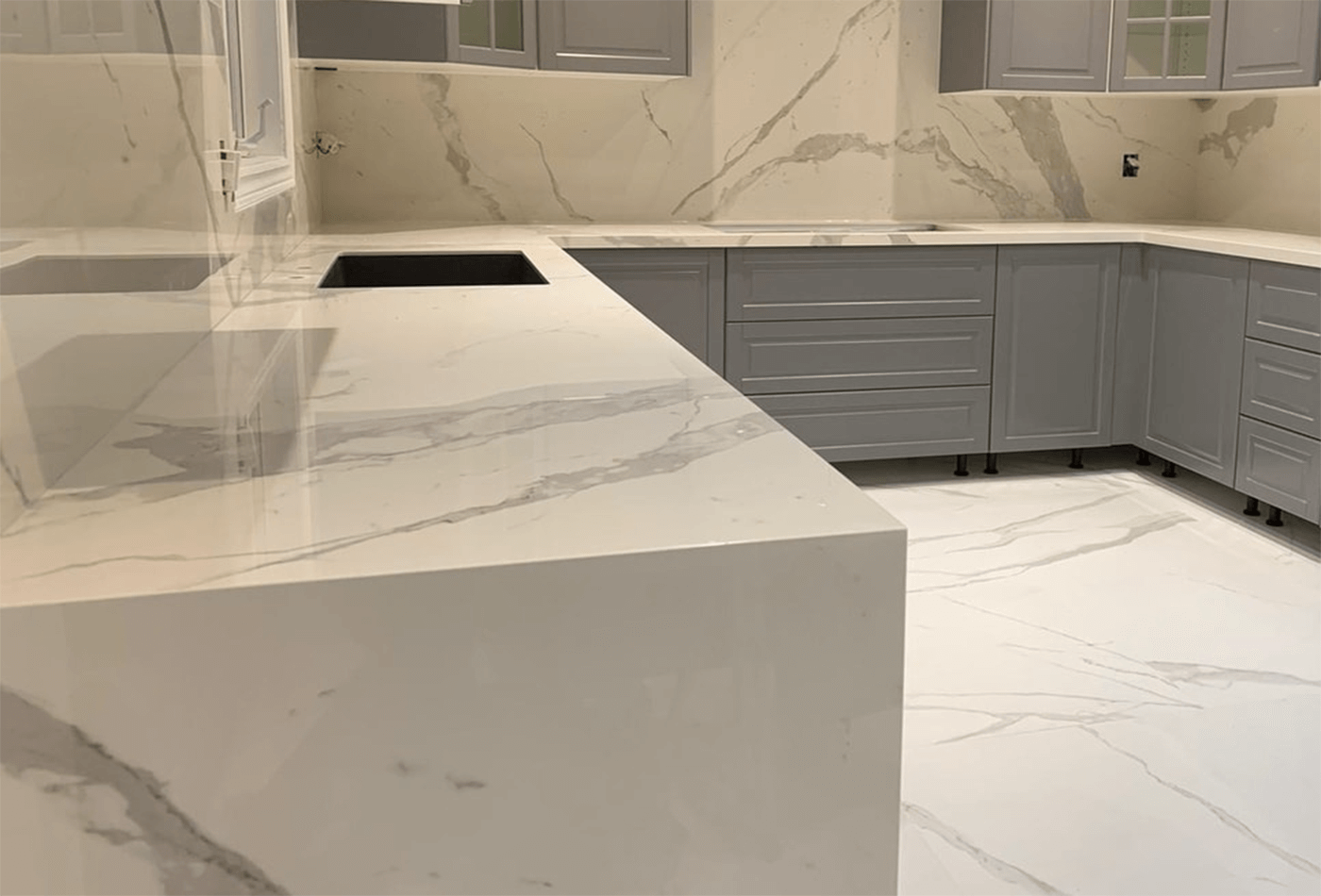
Because of its thin, lightweight nature, a porcelain countertop can be formed into a large slab. Despite being available in a variety of thicknesses, porcelain countertops are most commonly fabricated, which are ideal for modern spaces with clean lines. In fact, porcelain countertops are so thin that they can be installed over existing countertops!
Sink Incorporation

This porcelain countertop feature is the most appealing to many interior designers! Though natural stone allows for the sleek integration of sinks as well, porcelain’s ability to take on any colour opens up a world of creative sink integration possibilities.
Porcelain Finishes:
Porcelain tiles come in three different finishes: polished, matte/natural, and antique. Polished porcelain tiles add a touch of luxury, while matt porcelain provides a more understated look and antique finish provides a more traditional feel. Our wood and stone porcelain finishes look as good as the real thing thanks to high-definition designs. Our porcelain tiles come in a variety of styles and effects, including marble, wood, stone, and concrete effects, as well as Decorative and Feature tiles. Porcelain tiles are hard wearing, durable, and require no maintenance once installed, allowing them to last longer without the effort required for real stone or wooden floors.
Porcelain Slab Countertops
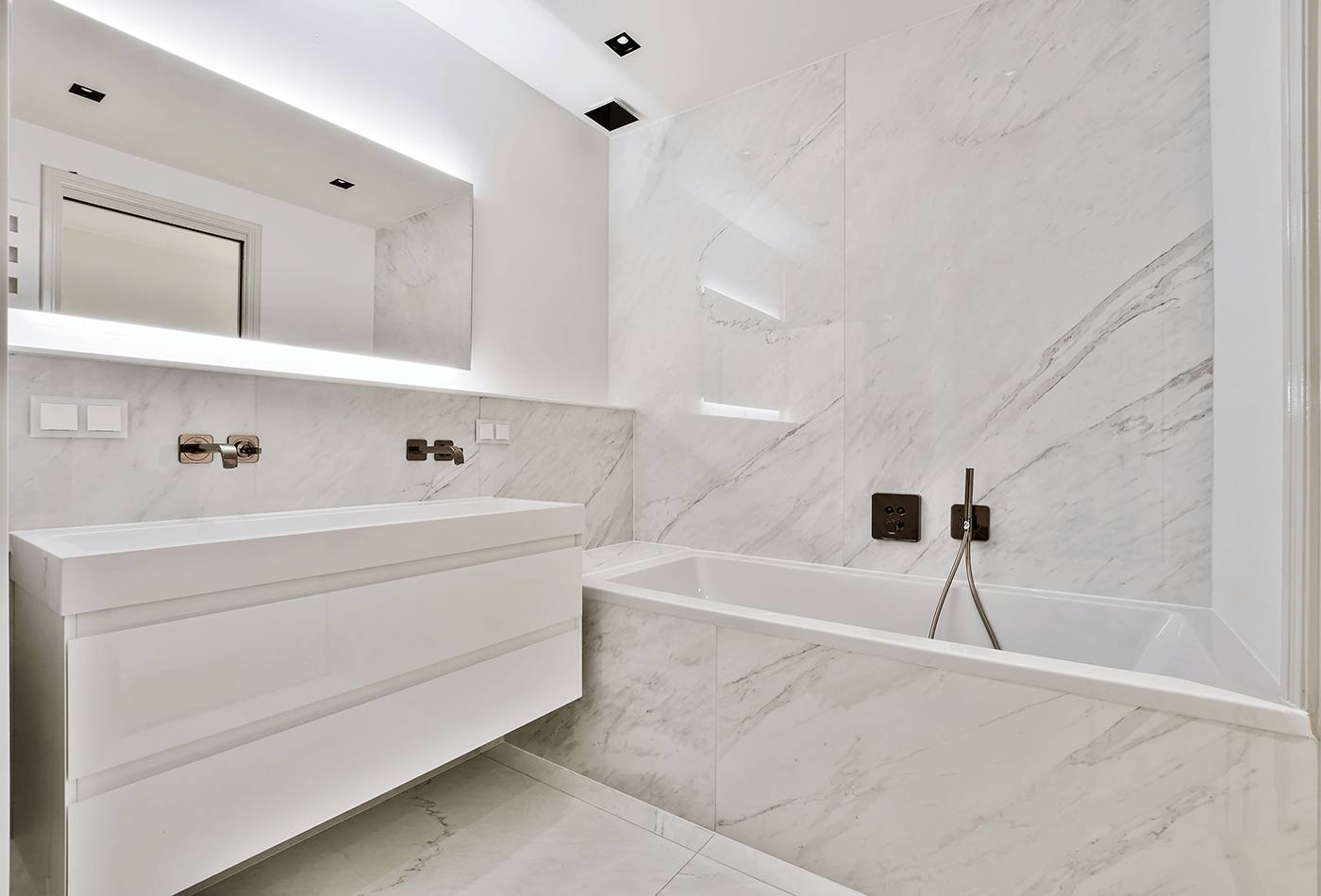
Before concluding that porcelain slabs are a good material for kitchen countertops, let us first look at some of its most popular features among current customers.
Excellent Stain Resistance
When comparing quartz and granite, the other has a better anti-stain ability due to its resin binders, which contribute to its non-porous properties. However, the two materials are quite expensive, and if you are looking for a less expensive alternative, porcelain is an excellent choice.
Outstanding Heat Resistance

This material, like granite, is produced at high temperatures, making it susceptible to heat. There will be no dark burnt spots when you place a hot pan on top of a porcelain countertop.
Superior Scratch Resistance
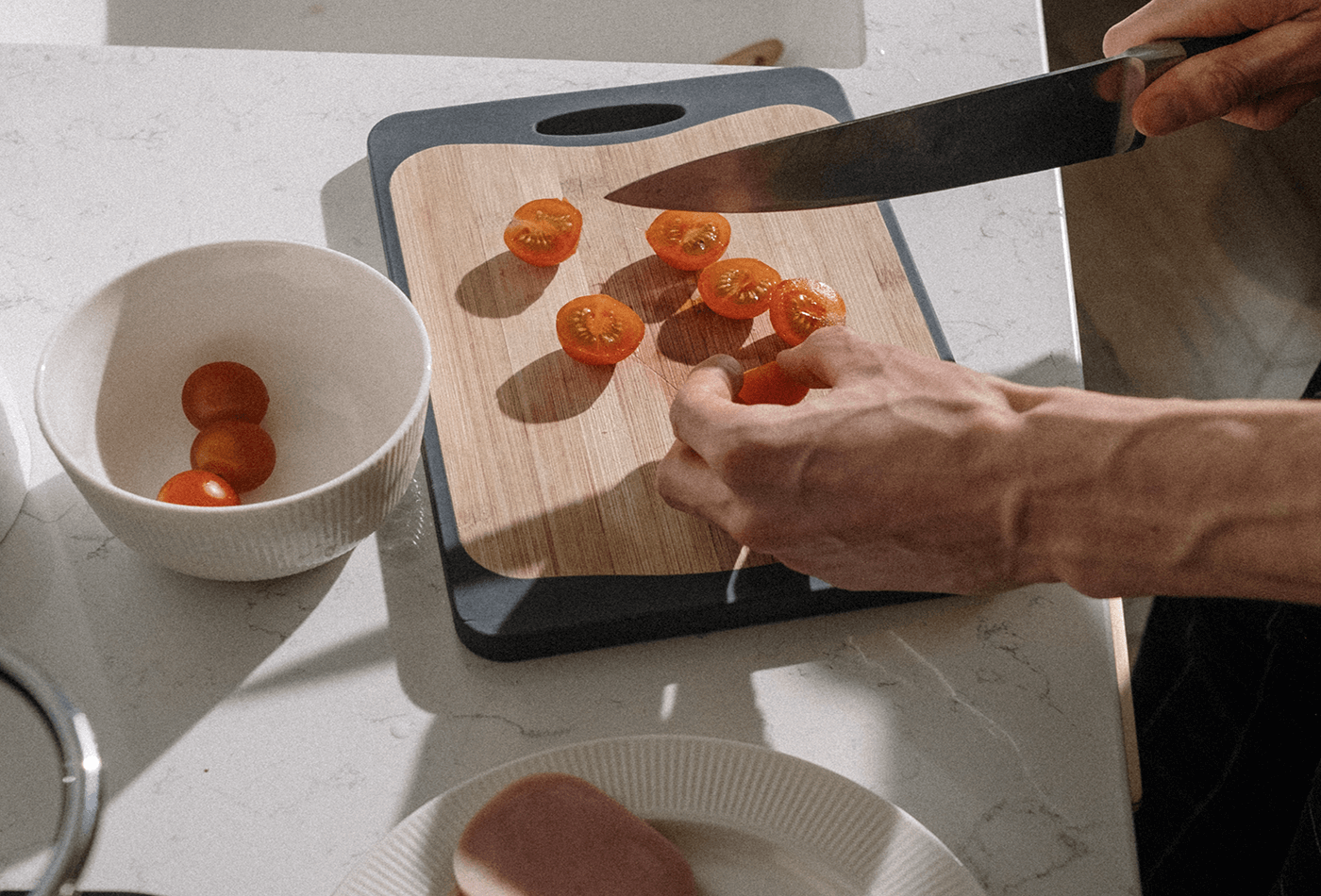
Porcelain’s scratch resistance is comparable to that of quartz and granite. It does, however, have a slight weakness with ceramic knives in that it can effectively scratch the surface of porcelain countertops. When using knives on your porcelain counters, use a wooden or hard plastic chopping board to avoid direct contact between the knife and the countertop.
Hardness and Durability
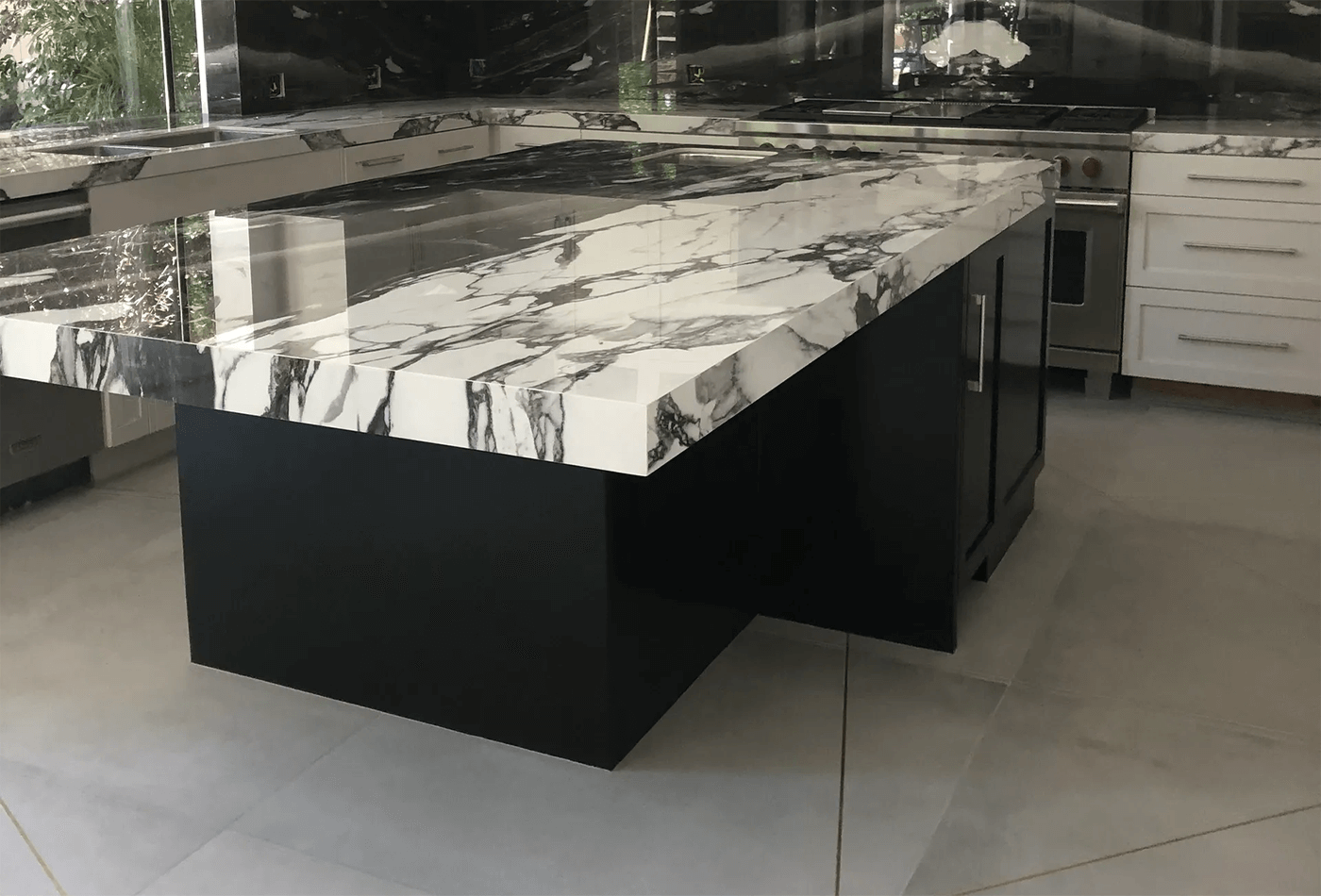
Kitchen countertops must be durable enough to withstand wear and tear. Similarly, hardness is an important factor to consider so that your countertop does not crack, chip, or cut easily. Porcelain countertops have an incredible innate durability and hardness that is comparable to natural stone. However, proper care and maintenance of this material is required to ensure a longer life and preserved beauty.
Excellent Resistance to UV Rays
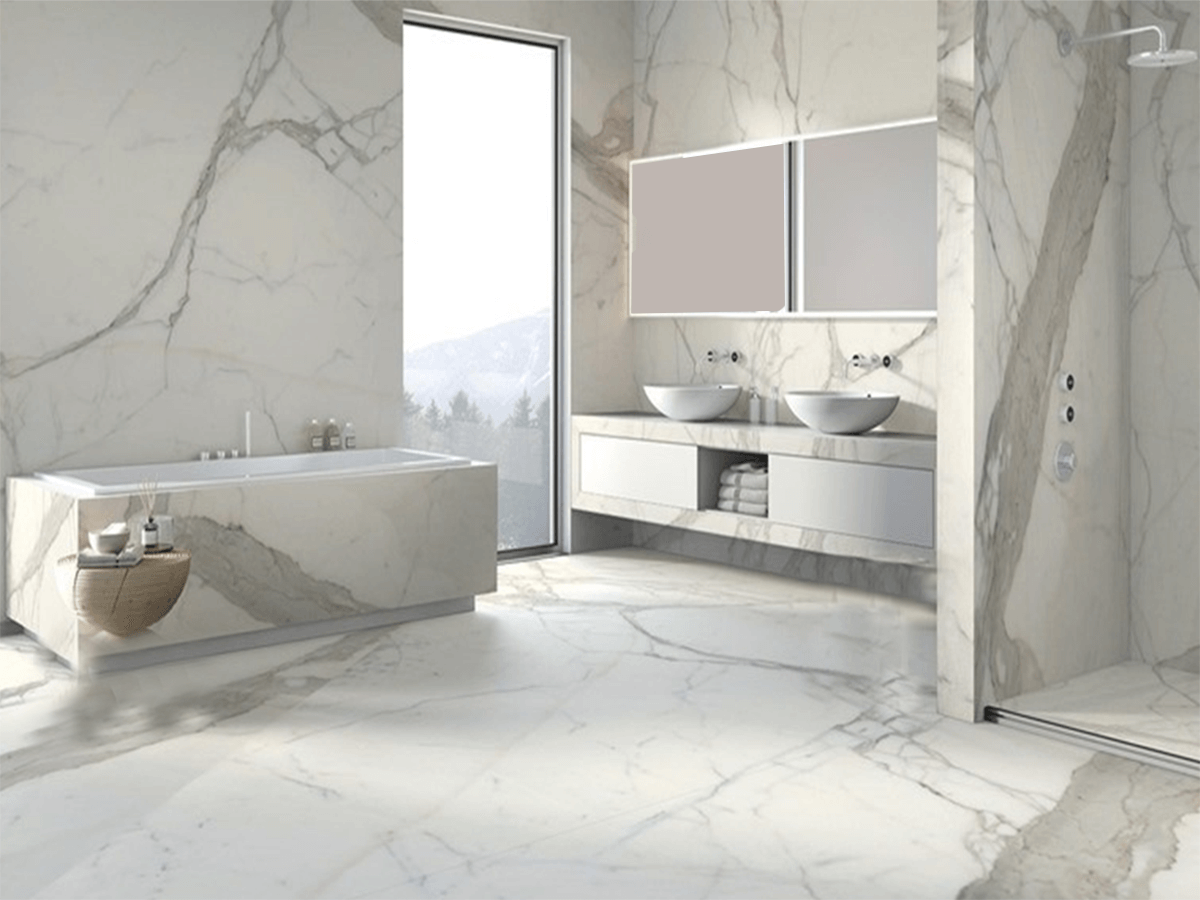
As you may have noticed, when exposed to direct sunlight, some minerals undergo a chemical reaction that causes the colour and design to fade. Marble is a good example of a mineral that reacts with sunlight.
Colour and Design Variations
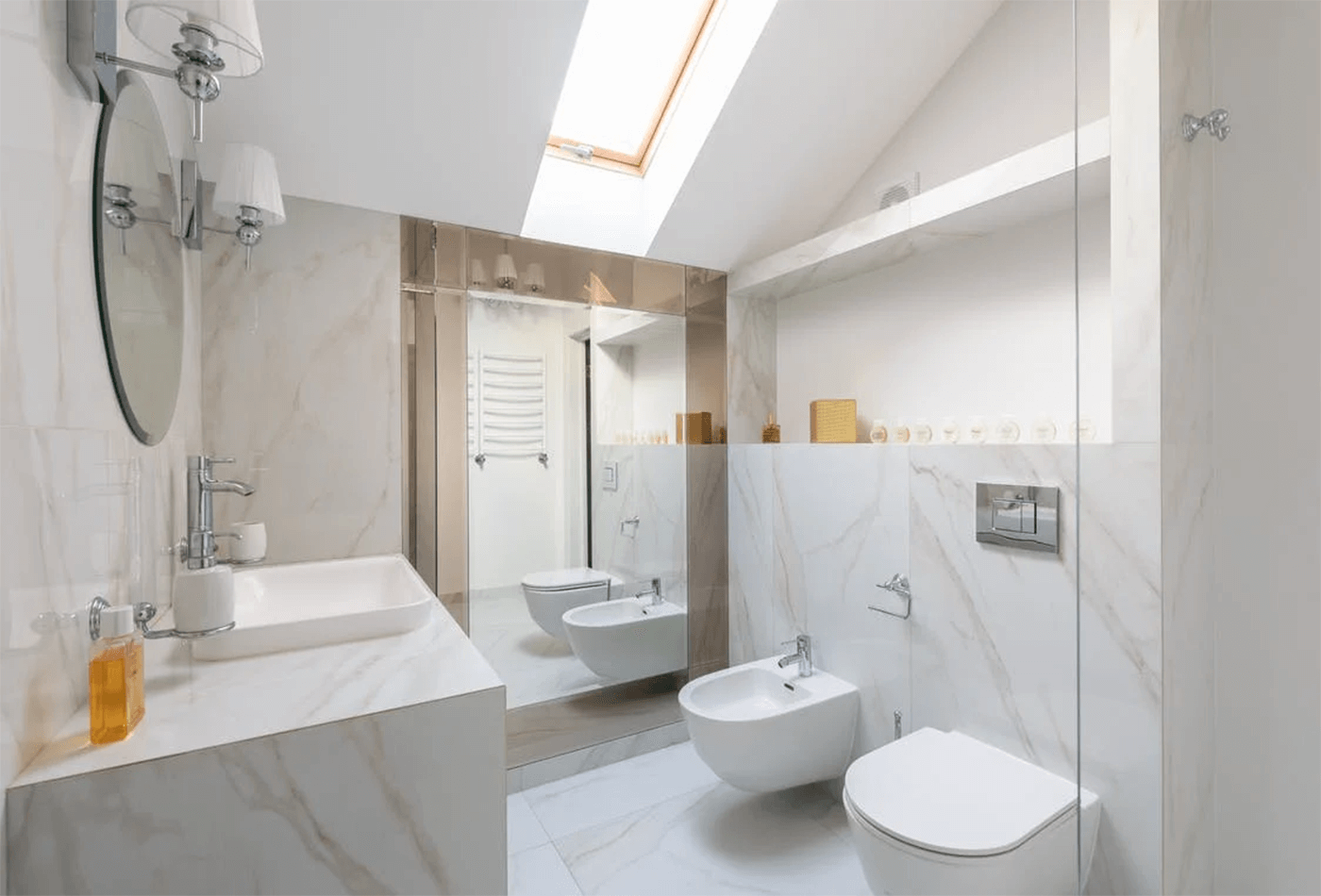
Because this material is man-made, variations in colour pigmentation and designs can be done from the second to the last stage of its manufacturing process. This provides a variety of options for the market’s various customer preferences. Porcelain now has design variations akin to marble and other minerals. Discoloration occurs in all minerals, including porcelain, over time. However, a few manufacturing plants have gradually developed innovations to slow this process.
HELSINKI WHITE PORCELAIN |
Can We Use Porcelain Outdoor Tiles?
Porcelain is ideal for use outdoors because it is extremely strong and long-lasting. Natural stone or concrete slabs are frequently used on outdoor seating, but these materials require regular cleaning and sealing and can appear dated. Porcelain is an excellent choice for a long-lasting, modern-looking alternative to traditional paving products. While porcelain tiles are ideal for outdoor use, not all porcelain tiles can be used outside. External use of standard 8-10mm thick porcelain tiles is not recommended because they are not strong enough to withstand heavy furniture and harsh weather conditions.
0
0













